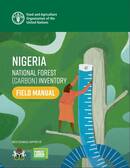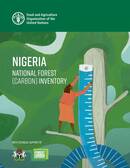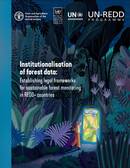Publications
Forests are a core nature-based solution, critical to addressing the climate emergency. If deforestation is stopped and degraded forests are restored, they can provide approximately one-third of the carbon reduction needed to avoid the most severe impacts of climate change. The world’s forests also act as shields, keeping humans safe from zoonotic diseases, such as coronaviruses. Their destruction...
Equatorial Guinea is determined to halt and reverse greenhouse gas emissions linked to forest loss and improve the management of its land and forests. It will do this within the framework of national development objectives and their contribution to the global fight against climate change, particularly the drive to reduce...
This manual was prepared within the framework of a technical assistance (TA) agreement entitled “Forest Resources Inventory and Establishment of a forest reference level for REDD+ in Nigeria (UTF /NIR/066/NIR (644170)”, to support the implementation of national forest inventory (NFI) in Nigeria. An NFI is a key component of a...
The Federal Government of Nigeria (FGN) aims to develop a National Forest Monitoring System (NFMS) capable of measuring the status and evolution of forest resources in compliance with the requirements of the United Nations Framework Convention on Climate Change (UNFCCC); with Forest Reference Emission Levels (FRELs) to serve as a...
For countries eager to develop a robust and sustainable National Forest Monitoring System (NFMS), clear legal frameworks and instruments related to the collection and management of forest data are key. A recently launched UN-REDD publication, “Institutionalisation of forest data: Establishing legal frameworks for sustainable forest monitoring in REDD+ countries,” provides...





